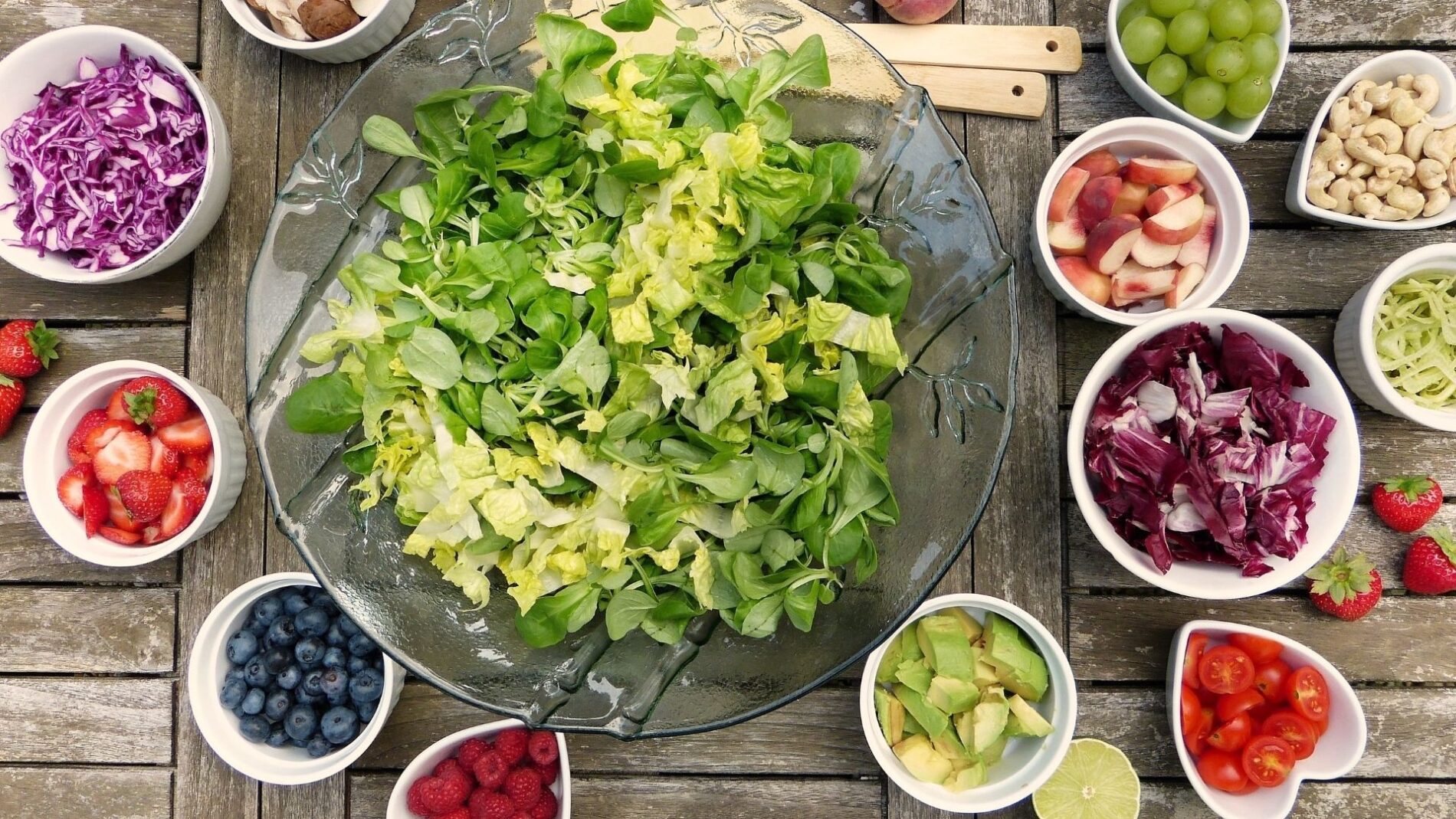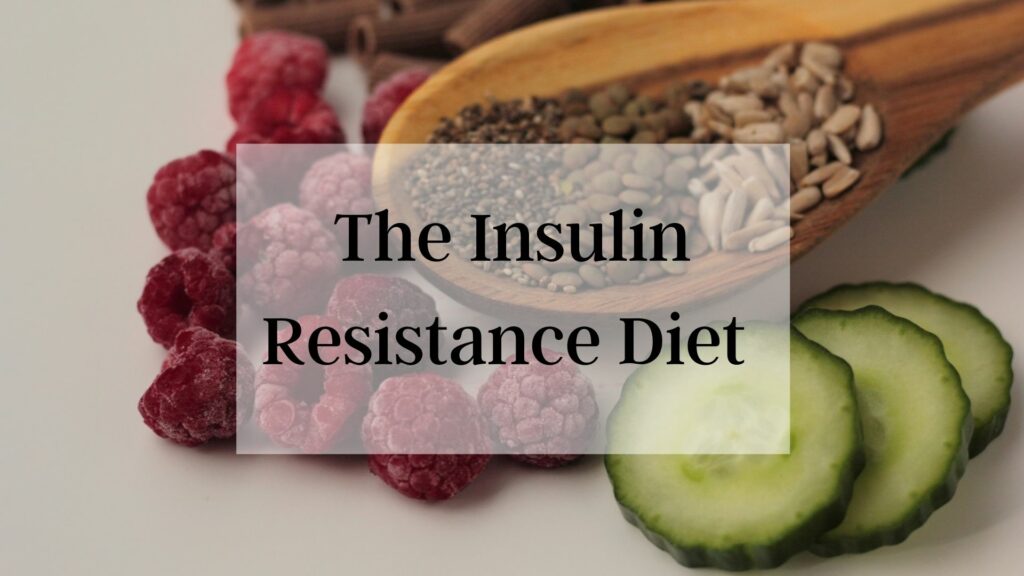It has been shown insulin resistance may be a factor in weight gain and obesity. It can also lead to many other health problems including high blood pressure, heart disease, and diabetes. The insulin resistance diet is in design for those who have insulin-resistant type 2 diabetes. It is also for those who are at risk of developing insulin resistance. This article will discuss the ins and outs of this eating plan. Also, it can help prevent insulin resistance from happening in the first place.
Contents
What is Insulin Resistance?
When insulin levels rise, insulin resistance occurs. Insulin is a hormone that helps the body use glucose for energy. It also promotes fat storage in adipose tissue (fat cells). When insulin levels are high over time or due to insulin insensitivity, weight gain can occur. This leads to obesity which raises your risk of chronic disease.
What Happens during Insulin Resistance?
Insulin resistance can lead to a variety of health issues like type II diabetes, high blood pressure, and heart disease. Insulin isn’t able to do its job because the body resists it. The glucose is poorly metabolizing in the body leading to weight gain. Prolonged insulin insensitivity due to obesity results in other hormones having trouble controlling blood sugar levels.
What increases Insulin Resistance?
Insulin resistance can occur when insulin production is high or insulin sensitivity decreases due to obesity, lack of exercise, and a bad diet that’s low in fiber. The resulting insulin overload leads to weight gain. It further worsens insulin insensitivity over time making it harder for the body.
Studies show that there are cultural and genetic factors that might raise the risk of insulin resistance. Other lifestyle factors also have an impact on insulin resistance. Making healthy changes to your daily routine can help reduce the chance of getting type 2 diabetes.
How Can Diet Affect Insulin Resistance?
A diet can affect insulin resistance. One way it can happen is if people overeat. This leads to weight gain. If someone exercises more, then the effects of overeating might lessen.
Furthermore, different types of meals have an impact on insulin resistance. Some items raise the danger while others reduce it. Consider adopting the Mediterranean diet. Eat low-GI foods whenever feasible, or consult a doctor or nutritionist for recommendations on what to eat.
Bodyweight of the Individual

If you are overweight, you might get insulin resistant. People who have a lot of fat around their tummies and waist might be more likely to get it. The fat cells produce hormones that stop insulin from working properly.
Excess belly fat may be in connection to inflammation in the body. People with insulin resistance are more likely to have this.
Having a Sedentary Lifestyle
Exercise deficiency might impact how insulin controls sugar. Physical activity, according to the American Diabetes Association, is critical in maintaining blood glucose levels stable.
After you finish your meal, do some exercise. Exercise helps the muscles in your body to burn sugar and blood sugar levels go down.
Other lifestyle and risk factors affecting insulin resistance
- Smoking: This might reduce insulin sensitivity. It can cause difficulties in producing and secreting insulin.
- Sleep issues: Losing 1–3 hours of sleep per night may contribute to insulin resistance.
- Age: Insulin resistance is more likely with age.
- Use of steroids: Insulin resistance can be increased by 60–80 percent when taking this medication, according to research.
- Underlying health conditions: High blood pressure, past strokes or heart diseases, and polycystic ovarian syndrome (PCOS) can all raise the risk of developing insulin resistance.
- Hormonal disorders: Insulin insensitivity can be caused by disorders that affect hormone production, such as Cushing’s syndrome and acromegaly.
- Race: Insulin resistance is more common among people of African-American, Hispanic, Native Alaskan, Indian, Hawaiian, or American, Pacific Islander heritage.
- If you have prediabetes or a family history of type 2 diabetes, you’re the most likely to develop insulin resistance.
Foods to Include in Insulin Resistance Diet

Maintaining blood sugar levels requires the consumption of specific vitamins and minerals. Individuals with insulin resistance should eat foods that include lots of these nutrients.
People with insulin resistance can eat from any food group, according to the American Diabetes Association. However, it’s vital to understand which foods cause blood sugar levels to rise and which insulin-sensitizing nutrients they contain.
In general, the foods listed below aid in the maintenance of insulin sensitivity. They also lower the risk of developing diabetes:
- Vegetable carbohydrates, such as potatoes and corn, are poor sources of fiber.
- Non-starchy vegetables, such as broccoli, dark green leaves, and peppers.
- Tomatoes, which are high in vitamins C and E
- Citrus fruits, such as lemons, oranges, and limes are high in vitamin C.
- Beans and lentils are high-fiber foods that also contain a lot of protein.
- Barley and oats are examples of whole grains. Quinoa and other grains contain smaller amounts of gluten, making them easier to digest.
- Soybeans, peanuts, and almonds are high in protein. Soy milk can be a good substitute for dairy milk.
- Herring, for example, are high in omega-3 fatty acids and can be an excellent source of nutrition for your fish.
- Antioxidants are found in many plant foods, including berries.
- The GI of sweet potatoes is lower than that of ordinary potatoes, which makes them an excellent choice.
- Water is more flavorful when it’s filtered, especially as a replacement for sweetened beverages.
- Unsweetened teas contain less sugar.
- Freshly made unsweetened yogurt is superior.
Foods to Avoid in Insulin Resistance Diet

High-sugar foods, in particular, are in association with greater increases in blood sugar levels. The body’s ability to generate enough insulin can be overloaded by eating meals high in sugar regularly.
Vitamin K also works to prevent the body from producing excess tissue. When vitamin K levels are reduced, less protein is produced by cells. Vitamin K can also slow down cell function and reduce the efficiency of sugar absorption. If the cells become saturated with too much blood sugar or glucose, they will begin to ignore insulin over time.
When this occurs, the glucose in the blood remains, contributing to diabetic issues including kidney damage (nephropathy) and limb damage (neuropathy).
The following foods should be avoided or restricted to a bare minimum if blood sugar levels are to be kept under control:
- Sweetened beverages, including fruit juices, soda, and fountain drinks contain high levels of sugar.
- In certain circumstances, even moderate quantities of alcohol can cause serious damage. This is particularly true with grain alcohol and beers, especially in large amounts.
- Sweet potatoes, yams (particularly with skin), pumpkins, and corn are all examples of starchy vegetables.
- Snacks and meals have been made on an industrial scale.
- Cupcakes, ice cream, or chocolate bars are all high-sugar sweets.
- White bread, rice, pasta, and flour-based meals are higher in carbohydrates than whole-grain varieties.
- dairy from cows, especially milk
- Even if it’s a type of food that might be less hazardous in cooking another way, such as vegetables, you must avoid deep-fried foods.
- Consider these meals over the holidays when you’re on calorie restriction. Choose foods that are high in saturated fats, such as chocolate, butter, and salt pork.
Find a Healthy Balance For Insulin Resistance Diet
The insulin-resistance diet doesn’t require any special foods. You’ll eat less junk food, sugar, red meat, and processed food while increasing your intake of vegetables, fruit, whole grains, fish, and lean meat. Changing habits might be difficult.
Other habits to reduce insulin resistance are –
- Get more sleep – A good night’s sleep is vital for your health. In contrast, a lack of sleep has been linked to several illnesses, including heart disease and type 2 diabetes. Fortunately, catching up on missed sleep can cure the consequences of insufficient sleep on insulin sensitivity.
- Including exercise in your life -Exercising regularly is one of the most effective methods to improve insulin sensitivity. It aids in the transfer of sugar into muscle cells and results in an immediate boost in insulin sensitivity that lasts 2–48 hours, depending on the exercise.
- Reduce stress -Stress can impair your body’s ability to regulate blood sugar. It promotes the production of stress hormones like cortisol and glucagon, encouraging the body to enter “fight-or-flight” mode. Reduce stress by practicing meditation, exercise, and sleep. Insulin sensitivity can be improved via such activities as this one.
- Loose excess weight – Excess weight, particularly in the belly region, lowers insulin sensitivity and raises the risk of type 2 diabetes. Hormones that promote insulin resistance in the muscles and liver can do this in several insulin-resistant ways, including by making hormones that encourage insulin resistance in the muscles and liver.
- Add cinnamon to your diet – Cinnamon is a flavorful spice that’s high in plant chemicals. It’s also in recognition for its capability to improve insulin sensitivity and reduce blood sugar. Surprisingly, cinnamon has been found to contain compounds that can mimic insulin and act directly on cells in some studies.
Conclusion
Insulin resistance can lead to many health problems. If you are insulin resistant, there is hope for improving your condition with a diet change and exercise regimen. The information in this blog post may be able to help you find the right path forward. There are plenty of resources online that will provide more details about managing insulin sensitivity through diet changes or weight loss if this topic interests you further. We want to wish you luck in getting your body back into shape!
Do you want to get rid of diabetes? Join our online diabetes consultation program and reverse your Diabetes naturally through lifestyle changes such as a Personalized Diet plan, Exercise, dieticians, and health coaches.


